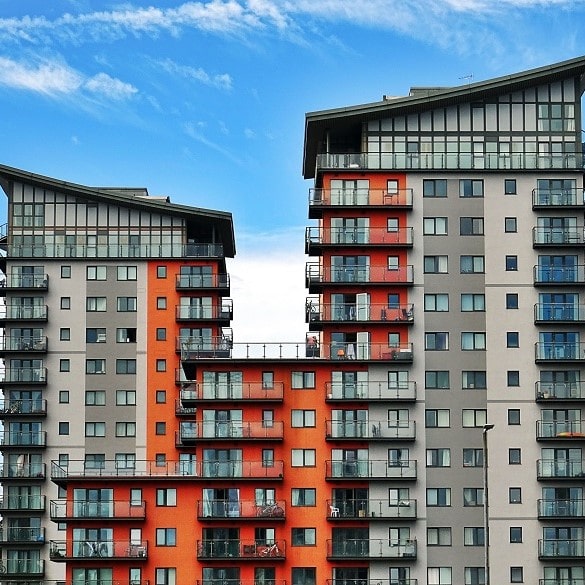Bank Expert: Demand for Housing on the Secondary Market Is Growing | Luminor

Since the beginning of last year, inflation in Latvia has been on the rise, and the prices of energy and construction materials have also risen significantly. This has increased construction costs and may change real estate market trends. “In recent years, the purchase of housing in new projects has become increasingly popular, but the current high construction costs may, at least temporarily, change the rules of the game in the market, activating the secondary housing market or the purchase of properties that are sold repeatedly,” says Kaspars Sausais, Head of Housing Loans at Luminor.
New Projects Will Remain Popular
According to Luminor bank’s data, last year the volume of loans issued for buying apartments in new projects grew by 80% and the demand for them was equal to the interest in apartments in standard type apartment buildings. However, the first months of this year show that the pace of construction in real estate is starting to slow down - building materials are harder to come by, material prices have risen significantly, and it is difficult to predict the total cost and final price of apartments. Most ongoing projects are being continued, but the construction of new buildings is in many cases being delayed. This will reduce the availability of housing in new projects in the coming years and make such housing significantly more expensive. Already last year, construction costs grew by 10-30% and this year the increase continues.
According to Luminor’s observations, last year the number of transactions in new projects peaked in the second half of the year, while this year it is falling. As supply decreases and prices rise, the number of transactions in the first-time or new housing market could continue to fall. Secondary market prices should be lower due to depreciation, but given the very limited supply, lower prices cannot really be observed.
Renovated Standard Type Apartments Are in Demand
There could also be more interest in apartment properties in Soviet-era apartment buildings that have been renovated and are therefore more energy efficient. These apartments can serve as an alternative for clients who wanted to buy an apartment in a new project, but due to price rises can no longer afford it, or the market supply will be so limited that apartments in new projects will not be available either in the primary or secondary market.
Renovating a building reduces its energy consumption, increases its life expectancy and increases the value of its apartments by around 10-30%, making it a good choice for people who, for various reasons, will not be able to buy an apartment in a new project.
The bank’s expert forecasts that the demand for apartments in need of major renovation will also continue to decline, as the high prices of building materials and labour costs will be a huge burden for potential buyers.
Housing loan
